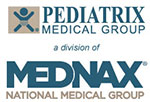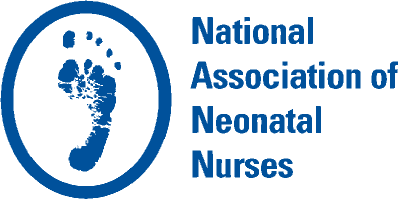NANNP Corner
Developing the Spirit of Inquiry
Bobby Bellflower, DNSc NNP-BC FAANP
NANNP Council Chair
A few weeks ago, some of the nursing leaders in the neonatal Advanced Practice Registered Nurse (APRN) community introduced an interesting topic on the National Association of Neonatal Nurse Practitioners (NANNP) MyNANN community. (If you are a neonatal APRN and not a member of the NANNP community, consider joining).
The topic was “What has happened to the spirit of inquiry?”
Defined as continually questioning practices, the spirit of inquiry is the beginning of evidence-based practice in the neonatal intensive care unit (NICU; Melnyk & Fineout-Overholt, 2018, p. 16). How many of us work in NICUs that do things a certain way because “we have always done it this way” or “if it’s not broken, why fix it?” Does your NICU have a culture that encourages all health professionals to question current practice? Too often, neonatal nurses and APRNs listen to rounds to learn without asking why we do things.
Evidence-based practice (EBP) is essential to enhance the quality of healthcare provided to babies and their families, improve patient outcomes, contain or reduce costs, and empower the clinician (Bodenheimer & Sinsky, 2014). Before EBP can occur, there must be a NICU culture supportive of the spirit of inquiry, and healthcare professionals must have the tools available to help them conduct EBP. According to Melnyk and Fineout-Overholt (2018), there are six critical elements of an EBP culture:
- A spirit of inquiry where all health professionals are encouraged to question their current practices
- A philosophy, mission, clinical promotion system, and evaluation process that incorporates EBP and the EBP competencies
- A cadre of EBP mentors who have in-depth knowledge and skills in EBP, mentor others, and overcome barriers to individual and organizational change
- An infrastructure that provides tools to enhance EBP (e.g., computers for searching at the point of care, access to key databases and librarians, ongoing EBP educational and skills-building sessions, EBP rounds, and journal clubs)
- Administrative support and leadership that values and models EBP as well as provides the needed resources to sustain it
- Regular recognition of individuals and groups who consistently implement EBP. (p. 17)
How many of your units have developed a culture that encourages the spirit of inquiry and EBP? In these difficult times, many hospitals have discontinued their libraries and librarian resources. Some hospitals have limited computer searching in the NICU; many have suspended or terminated subscriptions to crucial databases. Still, more hospitals have discontinued educational sessions on EBP. Without access to the tools, it is not easy to cultivate a spirit of inquiry or conduct EBP.
Suggestions discussed by the neonatal APRN leaders in the MyNANN community included subscribing to the Cochrane Neonatal database, talking with the NICU APRN manager or NICU leadership about access to resources such as libraries, and encouraging APRN students to develop a spirit of inquiry. The Cochrane database (https://neonatal.cochrane.org) is free and has archived webinars about EBP and quality improvement. The site routinely discusses systematic reviews and meta-analyses of critical problems in the NICU. It is available to all healthcare providers and can be accessed via smartphones. After going to the site, click on the second tab called Our Work, then the first tab on the left titled Our Reviews, and an alphabetized list of problems and issues in the NICU appears.
To help students learn about the spirit of inquiry and develop EBP/quality improvement skills, refer them to a new document for nursing education released by the American Association of Colleges of Nursing in April, 2021 The Essentials: Core Competencies for Professional Nursing Education addresses the need for EBP and continuous quality improvement in healthcare, especially in advanced practice. All APRN students will learn the steps of EBP and quality improvement.
Other ideas include precepting neonatal APRNs or joining EBP teams. Many colleges and universities provide access to the library for preceptors or adjunct faculty. Talk to leadership about developing a spirit of inquiry in the NICU and creating access to the tools for EBP and quality improvement.
With the increase in complexity of NICU care, new and innovative treatments guidelines, and the need for APRNs in the NICU, EBP is crucial to provide the best care for babies and their families. EBP starts with the spirit of inquiry—continuously questioning practices in the NICU. Join the conversation on the NANNP MyNANN community by logging in at NANN.org/membership/my-nann. We need your suggestions and ideas!
References
American Association of Colleges of Nursing. (2021). The Essentials: Core Competencies for Professional Nursing Education. https://www.aacnnursing.org/Portals/42/AcademicNursing/pdf/Essentials-2021.pdf
Bodenheimer, T., & Sinsky, C. (2014). From triple to quadruple aim: Care of the patient requires care of the provider. Annals of Family Medicine, 12(6), 573–576. https://doi.org/10.1370/afm.1713
Cochrane Neonatal. (2021). https://neonatal.cochrane.org
Melnyk, B. M., & Fineout-Overholt, E. (2018). Evidence-based practice in nursing and healthcare. A guide to best practice, 4th ed. Lippincott Williams & Wilkins.
Our Sponsor


